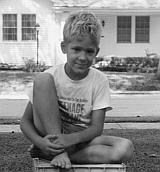|
Metairie (Images of America) |
|
|
|
Veteran's Highway & The Causeway |
||
|
|
Some hundred years later, in 1957, the population of Metairie could be gauged by the two new
1,000,000 gallon water towers that had been erected -- one on Athania Parkway near Causeway and the other on Veterans Highway
at David Drive. A checked design was applied to the David Drive tower so that pilots landing at the modern new Moisant International
Airport (now Louis Armstrong International Airport) could easily avoid it. Metairie’s
growth has been discussed in earlier chapters. The Veterans Highway and Causeway areas were simply extensions of that expansion.
But in 1972 a unique “city within a city” cropped up. Local developers Ray Anselma, Joseph Peters, Joseph Marcello
and attorney David Levy laid out a plan to convert a parcel of land between Veterans Highway, Causeway Boulevard, West Esplanade,
and Division Streets into an entertainment and apartment complex district. Local lore traces its name back to a snow ball
stand on 17th Street near Severn which was operated by two teenage boys – it was
called “Fat City”. Others have said that it was named for Fat City, the 1969
novel by Leonard Gardner (which was later made into a movie). Popular spots in Fat City included Melvin Facheaux’s Dillinger’s
Night Club at 3612 Hessmer Street which offered “Live Floor Shows -- 11 P.M. and 1 A.M.”, Glen’s Restaurant
(3213 Arnoult Road), and more places than can fit in this brief introduction. Veterans
was, and still is, the “new” highway in Metairie. There is no land remaining on which to plan another major road.
Like Airline, Veterans Highway underwent a name change -- to Veterans Boulevard. A few blocks from the lake, Causeway Boulevard
intersects with the highway and leads to the world’s longest bridge – the Lake Pontchartrain Causeway.
|
|
|
|
||
